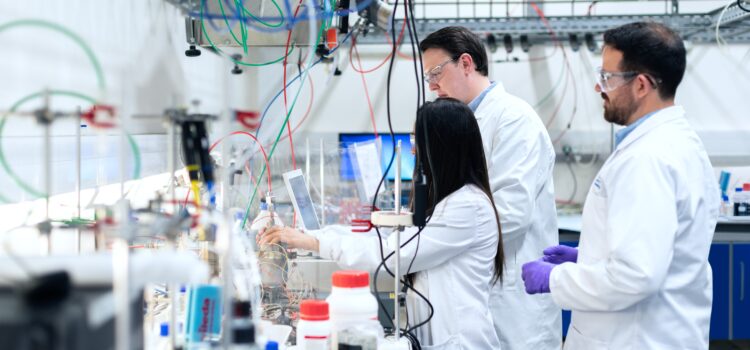

This article is an excerpt from the Shortform book guide to "Surely You're Joking, Mr. Feynman!" by Richard Feynman. Shortform has the world's best summaries and analyses of books you should be reading.
Like this article? Sign up for a free trial here.
What’s Richard Feynman’s approach to science? What should scientists do with doubt? What’s every scientist’s responsibility?
According to Richard Feynman, science is a serious business. Feynman is known for having fun and enjoying his work, but he also has a reputation for integrity in his field. In his memoir, he writes about the importance of intellectual honesty and accountability in science.
Continue reading to learn Feynman’s views on the practice and profession of science.
Richard Feynman on Science
According to Richard Feynman, science and math education is especially important in the modern age, and not just because of technological advances. He argues that understanding math and science requires a level of intellectual honesty that other fields lack. Feynman’s experience in the scientific world shines a light on the value of questioning others, questioning yourself, and having the integrity to admit when you’re wrong.
The first of these principles can best be summed up as “Don’t take anyone’s word for granted; not even the so-called experts.” Feynman gives the example of a physics paper that was published on a topic that he didn’t fully understand. After Feynman wracked his brain at the topic for a while, his sister suggested that he approach it like a student doing a homework assignment and recheck all of the paper’s math. Doing so—starting from first principles and working through the paper’s argument for himself—unlocked the puzzle in his mind and even provided him with insights that he was able to apply in his own work.
(Shortform note: Feynman’s dedication to verifying, and thereby understanding, another scientist’s work isn’t unusual. In The Structure of Scientific Revolutions, Thomas Kuhn explains that confirming already established conclusions is one of science’s chief intellectual functions. After all, the process by which knowledge is achieved, whether experimental or theoretical (as in the paper Feynman studied), is just as important as the end result. The fact that there may be multiple routes to achieve specific scientific “answers” is one reason it’s so important for scientists to understand each other’s process, since seeing a problem from another perspective may yield further “aha” moments, as Feynman says it did for him.)
The research that came from that stroke of insight led Feynman and his colleague Murray Gell-Mann to solve the theoretical problem of beta decay—the process by which subatomic particles emit a particular kind of radiation. Feynman and Gell-Mann’s solution also showed that the results of many beta decay experiments were flawed, which highlights another aspect of Feynman’s thoughts on intellectual honesty: Good scientists must call attention to any possible doubt about their work. When reporting the results of any experiment or study, it’s crucial to acknowledge any variables, theories, or conditions that might call your conclusions into question. Questioning yourself is an essential part of overcoming your own bias.
(Shortform note: The way that science embraces self-doubt goes against the grain of how science is taught in schools—namely, as a collection of facts instead of a process to zero in on objective reality while systematically eliminating preconceptions. This disconnect between the process of scientific inquiry and its results can undermine public trust in science when previously known “scientific facts” turn out to be untrue. In order to maintain public engagement, the scientific community must be open about its self-questioning nature, one that Feynman insists is a fundamental virtue. Otherwise, scientific doubt can be unethically exploited to shape public opinion on matters such as health, pollution, and climate change.)
Science, after all, is the process by which you can short-circuit bias to arrive at the truth, but Feynman says it’s every scientist’s job to make sure the system works as advertised. There are two ways to do this: by repeating other scientists’ work to make sure that the same results can be achieved, and by reporting the results of any study you conduct, whether or not they agree with your theories. If any field of knowledge doesn’t encourage both of these practices—either by discouraging repeat experiments or hiding contradictory data—then that field is pseudoscience and will remain so until more rigorous standards are established.
(Shortform note: Feynman’s litmus test of “repeatability” is often used by those in the physical sciences to cast doubt on fields such as psychology and sociology, in which findings are difficult to quantify or duplicate. A 2017 survey of psychology journals found that studies trying to replicate others’ results are actively discouraged, making it hard to weed out psychology reports with errors or systemic flaws. These problems are not limited to the so-called “soft sciences,” as reproducing experiments has become a growing challenge in fields such as medicine and biology that deal with complex, multifaceted systems in which individual variables are almost impossible to single out experimentally.)

———End of Preview———
Like what you just read? Read the rest of the world's best book summary and analysis of Richard Feynman's "Surely You're Joking, Mr. Feynman!" at Shortform.
Here's what you'll find in our full Surely You're Joking, Mr. Feynman! summary:
- The memoir of award-winning scientist Richard Feynman
- A walk through Feynman's life, from college to winning the Nobel Prize
- Why enjoying life is just as valuable as your education






